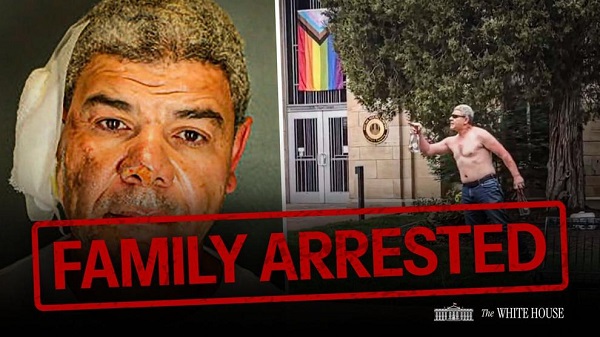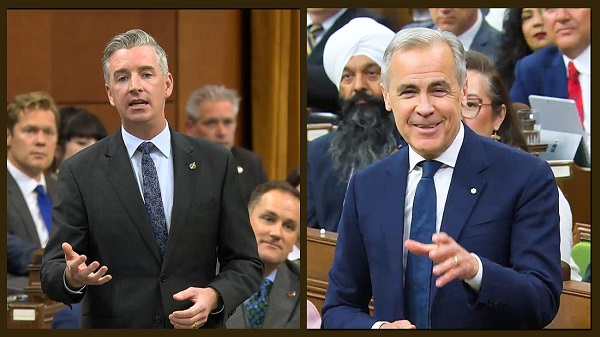Censorship Industrial Complex
BC nurse faces $163k legal bill for co-sponsored a billboard reading, “I [heart] JK Rowling.”

From LifeSiteNews
British Columbia nurse Amy Hamm, a single mother, faces a $163,000 legal bill and a three-month license suspension from the BCCNM over her public statements opposing LGBT ideology.
British Columbia nurse Amy Hamm is facing legal costs of $163,000 for her court battle over her statements publicly opposing LGBT ideology.
In a June 1 post on X, Amy Hamm announced that the British Columbia College of Nurses and Midwives (BCCNM) is seeking $163,000 in legal costs after firing her without severance after she was found guilty of “unprofessional conduct” when she publicly voiced the immutable truth that sex is based on biology.
“The @BCnursemidwife spent 4+ years persecuting me for my political views,” Hamm wrote.
“Their latest move is to try to take $163,053 dollars from me, a single mother, to pay for their b******* persecution that I wanted nothing to do with,” she continued. “And suspend my license for 3 months.”
The court document, submitted on May 29, seeks to suspend Hamm’s license for three months in addition to forcing her to cover the $163,053 legal cost.
The next day, Hamm announced that she plans to fight the BCCNM’s submission, saying, “Unfortunately for them, I am not a weak person. I reject their lies, and their punishment, and will fight to see that they never see a penny of the $161,000 they want to take from me. I will fight to see that they are punished for what they’ve done.”
“Their latest move is nothing other than a plain admission of their evil hearts,” she declared.
“They’ve already defended male rapists in women’s prisons, and the end of women’s rights,” Hamm continued. “Of course they would ruin my career and reputation, and then attempt to bankrupt me as a kill shot.”
“I couldn’t be more proud to stand alongside all of the reality based men and women who see this ideology for what it is, and aren’t afraid to speak the truth,” Hamm concluded.
I was very angry yesterday, as I made clear. Today I am feeling calm. I've got my lawyers, and the JCCF. I've got an army of supporters.
It should not have come as such a surprise that my persecutors, who have already spent years articulating the horrible depravity and lies…
— Amy Eileen Hamm (@preta_6) June 2, 2025
The move to force Hamm to cover legal costs comes after a March ruling from the BCCNM disciplinary panel which found that Hamm committed “unprofessional conduct” by publicly discussing the dangers of the LGBT agenda in three articles and a podcast appearance.
Furthermore, in late March, Hamm shared on social media that Vancouver Coastal Health fired her from her nursing position without severance after she was found guilty of “unprofessional conduct.”
Hamm found herself targeted by the BCCNM in 2020 when she co-sponsored a billboard reading, “I [heart] JK Rowling.” This sign was a nod to the famous British author’s public comments defending women’s private spaces from being used by gender-confused men.
The BCCNM accused Hamm of making “discriminatory and derogatory statements regarding [so-called] transgender people” while identifying herself as a nurse or nurse educator.
According to the college, Hamm’s statements were “made across various online platforms, including but not limited to podcasts, videos, published writings, and social media” between July 2018 and March 2021.
Already, Hamm has revealed that she will take her case to the provincial Supreme Court.
Censorship Industrial Complex
Trump admin probing U.K.’s crackdown on free speech

Quick Hit:
The Trump administration quietly dispatched U.S. diplomats to Britain in March to investigate growing free speech concerns. According to The Telegraph, they met with pro-life campaigners arrested for silent prayer and questioned UK officials about internet speech laws.
Key Details:
-
A five-person U.S. delegation visited Britain in March to probe free speech issues, meeting activists like 74-year-old Rose Docherty, arrested for silently praying outside an abortion clinic.
-
The team also met with UK Foreign Office officials and Ofcom, which now polices online content under the country’s Online Safety Act.
-
In February, Vice President JD Vance warned free speech is “in retreat” in Europe and pointed to arrests of pro-life demonstrators in the UK.
Diving Deeper:
According to The Telegraph, the Trump administration sent a team from the State Department’s Bureau of Democracy, Human Rights, and Labor to Britain in March for meetings with victims of what the administration views as increasingly authoritarian speech restrictions. The diplomats reportedly engaged with pro-life campaigners, including 74-year-old Rose Docherty, who was arrested for quietly praying near an abortion facility under the UK’s controversial “buffer zone” law.
“I didn’t break the law, I didn’t influence, I didn’t harass, I didn’t intimidate,” Docherty told reporters. “This can’t be just. It’s heartening that others around the world, including the U.S. government, have realised this injustice and voiced their support.”
The U.S. team also met with British government officials, including members of the Foreign Office and Ofcom. Ofcom’s growing authority over digital speech, enhanced under the UK’s new Online Safety Act, has become a flashpoint between Washington and London. The legislation allows British regulators to impose large fines on American tech companies for failing to adequately monitor and censor online content—a power U.S. officials say could have serious consequences for American firms and speech protections.
Vice President JD Vance spotlighted the issue during his speech at the Munich Security Conference in February, calling out the United Kingdom by name. “I look to our very dear friends, the United Kingdom, where the backslide away from conscience rights has placed the basic liberties of religious Britons, in particular, in the crosshairs,” he said. Vance specifically cited cases like Docherty’s, warning of a broader erosion of fundamental rights across Europe.
The administration’s concerns extend beyond religious liberty. The case of Lucy Connolly, a 42-year-old British mother sentenced to 31 months in prison for social media posts after a horrific mass killing in Southport, has also attracted attention from Trump allies. Reform UK leader Nigel Farage, a longtime ally of President Trump, described the case as emblematic of a “two-tier Britain” and claimed, “My American friends cannot believe what is happening in the UK.”
Despite mounting criticism, British Prime Minister Sir Keir Starmer has denied there is a crisis. In a February meeting with President Trump at the White House, Starmer said, “We’ve had free speech for a very, very long time in the United Kingdom, and it will last for a very, very long time.”
That reassurance hasn’t quieted concerns. A separate report from The Times of London in March found that British police make more than 30 arrests every day over alleged offensive online or public statements—amounting to approximately 12,000 arrests annually.
Censorship Industrial Complex
Canada’s PM Mark Carney Revives Online Censorship Agenda

-

 Automotive2 days ago
Automotive2 days agoCanada’s EV house of cards is close to collapsing
-

 Business1 day ago
Business1 day agoMeta inks 20 year deal for nuclear power
-

 Crime1 day ago
Crime1 day agoBoulder ‘terror’ suspect’s family in ICE custody, pending deportation
-

 Crime2 days ago
Crime2 days agoMexican Cartels Expanding Operations in Canada, Using Indigenous Reserves as Factory Hubs
-

 Energy1 day ago
Energy1 day agoTrump Keeps Focus On America’s Energy Production
-

 Alberta22 hours ago
Alberta22 hours agoAlberta Sports Hall of Fame to Induct Class of 2025
-

 Business11 hours ago
Business11 hours agoCarney’s Energy Mirage: Why the Prospects of Economic Recovery Remain Bleak
-

 Business1 day ago
Business1 day agoSpaceX to record $15.5B in 2025 revenue, surpassing NASA’s budget







